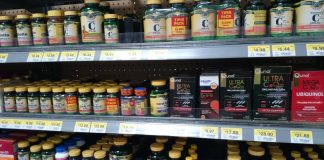Last Updated on January 22, 2024
Fast Facts:
- The FDA is alerting tattoo artists and consumers that they should not use tattoo inks marketed and distributed by A Thousand Virgins, in grey wash shades labeled G1, G2, and G3 (Lot #129 exp 1/16).
- Through testing, the agency has found bacterial contamination, including Mycobacterium chelonae, in unopened bottles of these tattoo inks. The FDA tested the inks to assist the Florida Department of Health in its investigation of an outbreak of mycobacterial infections in people who recently got tattoos.
- On August 4, 2015, A Thousand Virgins recalled certain tattoo inks sold separately and in sets, but the FDA is concerned that artists and consumers are continuing to use these contaminated inks from their current stock. Also, tattoo products with the same lot number manufactured by A Thousand Virgins may still be available online and may be marketed by other distributors. The inks were sold in single units and in sets.
- Artists who purchase tattoo inks and consumers who purchase tattoo inks or who seek tattooing should check the ink bottles to see if they are included in the recall. If you find inks subject to recall, place the closed bottles of ink into a plastic bag, sealing or tying off the bag to prevent leakage. Put this first bag into a second bag and tie off this bag separately. Check with your local waste management authorities for any disposal requirements in effect in your area.
What is the Problem?
FDA has identified microbiological contamination in unopened tattoo inks made by A Thousand Virgins, Inc. The tattoo inks are labeled G1, G2, and G3, indicating the shade.
FDA has tested unopened bottles of these inks and found contamination with a human pathogen, Mycobacterium chelonae, as well as Microbacterium organisms, and the molds Cryptococcus albidus and members of the Penicillium genus.
FDA is warning tattoo ink manufacturers, tattoo artists, and consumers not to use these tattoo inks that are contaminated or have been recalled.
What are the Symptoms of Illness/Injury?
When tattoo ink contaminated with mycobacteria is injected into the skin, the bacteria can cause an infection that remains at the site or that may spread throughout the body. Such infection might result in redness; swelling; itching; raised pink, red, or purple blemishes in the tattoo; or pain in the tattoo that does not go away. If you have these symptoms, you should seek medical treatment. You may also notice swollen and tender lymph nodes, at sites local and distant to the infected tattoo.
These infections can be severe and may require extensive treatment with antibiotics, hospitalization, or surgery. Sepsis, a potentially life-threatening body-wide infection of the blood, has been reported in cases of injection of contaminated tattoo inks. Once the infection has healed, the area may remain permanently scarred.
Who is at Risk?
Because tattooing involves injecting ink under the skin, the use of contaminated inks may lead to an infection. People with pre-existing medical conditions, including heart or circulatory disease, diabetes, or patients with compromised immune systems, are particularly vulnerable.
What Do Consumers and Tattoo Artists Need To Do?
Consumers and tattoo artists should know where their materials come from and should be able to identify and remove the contaminated inks described above. If you have used these links and adverse events occur, contact the manufacturer and the FDA. Tattoo artists should not dilute inks with tap water, distilled water, filtered water, reverse osmosis water, or other non-sterile water that has the potential to be contaminated. In addition, consumers and tattoo artists should purchase inks from reputable manufacturers who source their ink ingredients appropriately and can attest to using good manufacturing practices.
If you are a tattoo artist and are applying body art, advise your clients to monitor the application site closely and seek medical care if they notice redness, swelling, itching, bumps, or blemishes, or have pain in the tattoo site that does not go away. Please also inform your clients that they should be alert for rashes and inflamed tattooed areas beyond the normal healing period, as well as any tender lymph nodes, even those that are not near the tattoo. Please ask your clients to contact you, the artist, if they experience any of these symptoms, so you may remove the potentially contaminated ink from use. They should also seek medical care for their symptoms.
People with infected tattoos and tattoo artists whose clients notify them of potentially infected tattoos can report adverse events or side effects through the MedWatch Safety Information and Adverse Event Reporting Program.
What Do the Contaminated Products Look Like?
The front panel of the label bears a circular logo with the name of the manufacturer, “A Thousand Virgins.” Centered within the circle are G1, G2, or G3, indicating the particular shade of grey wash ink. Bottles are marked as Lot #129 with an expiration date of 1/16. The contaminated inks are sold singly and in sets of three or four bottles.
Where are they Distributed?
The tattoo inks and tattoo kits are sold online by A Thousand Virgins, at tattoo conventions and through other websites.
What is FDA doing about the Problem?
The FDA is working with A Thousand Virgins to recall the contaminated inks and is investigating to determine how they became contaminated. The FDA and the Florida Department of Health will provide more information as it becomes available.
How can I Report a Problem?
Adverse events (bad reactions) related to the use of FDA-regulated products can be reported through the MedWatch Safety Information and Adverse Event Reporting Program by:
- completing and submitting the adverse report online at www.fda.gov/MedWatch/report.htm; or
- call 1-800-332-1088 to request the form) and:
- completing it and faxing it to 1-800-FDA-0178; or
- mailing the completed form to MedWatch, 5600 Fishers Lane, Rockville, MD 20857.







